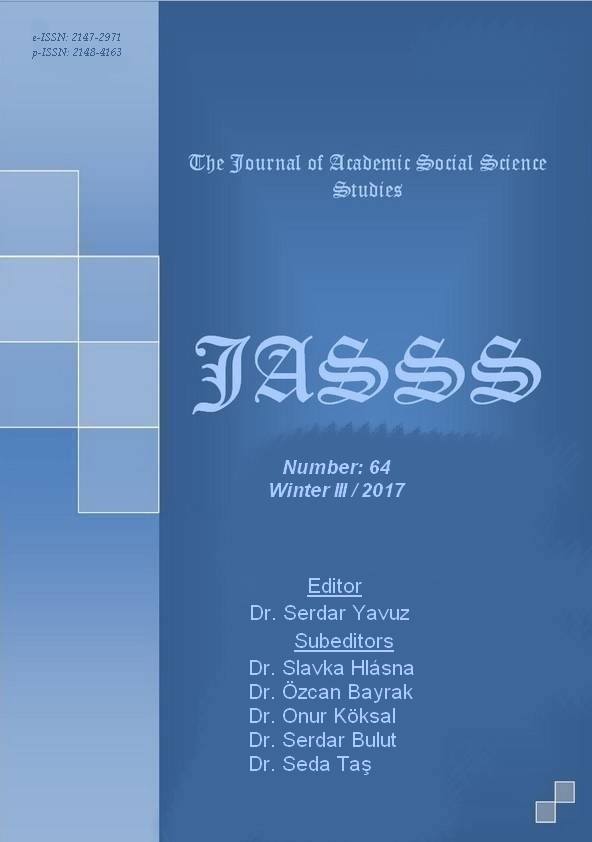Author :
Abstract
Antik Yunan’dan itibaren kullanılan ve şiire dair her türlü görüş, fikir ve teorileri kapsayan poetika, şairlerin şiir evrenini yansıtır. Türk edebiyatı tarihinde tezkire ve bazı dibacelerden itibaren de mevcut olan poetika kavramı, modern anlamda Cumhuriyet’in ilanından sonra kullanılmaya başlanır. Ancak birçok alanda Batılı düşüncenin Türk toplumuna girdiği dönem olan Tanzimat yıllarından itibaren poetikada da bu düşünce yapısı görülmeye başlanır. Tanzimat birinci ve ikinci dönem şairlerinden Namık Kemal, Ziya Paşa, Hamit ve Ekrem gibi isimlerin şiir hakkındaki görüşleri, çeşitli düz yazılarına ve poetik karakterli şiirlerine yansır. Tanzimat neslinin ardından Servet-i Fünûn döneminin önde gelen iki şairi Cenap Şehabettin ve Tevfik Fikret, modern Türk şiirine gerek ortaya koydukları eserlerle gerekse de şiir hakkındaki çeşitli yazılarında yeni açılımlar kazandırmışlardır. Servet-i Fünûn topluluğunun önde gelen temsilcilerinden Tevfik Fikret, poetikasını düz yazılarının yanı sıra şiirlerinde de ortaya koyar. Fikret şiire dair görüşlerini, sanat hayatının ilk yıllardan itibaren söz konusu manzumelerinde de yansıtmaya başlar. Fikret’in poetikasını yansıttığı şiirlerde öne çıkan başlık ise şair anlayışıdır. Poetik görüşlerini şair kimliği üzerinden şiirlerinde yansıtmaya çalışan Fikret’in poetikasında Recaizade Mahmut Ekrem ile Fransız romantik ve parnas şairlerin etkisi belirgindir. Fikret, hayal, çalışma, kadın ve müzik gibi unsurlar aracılığıyla şiire ve şaire dair görüşlerini şiire ilk başladığı yıllardan itibaren birçok manzumesinde ortaya koymaya çalışır. Bu çalışmada Tevfik Fikret’in eserlerinden hareketle şiirlerine yansıyan poetik görüşleri incelenmiştir. Bu doğrultuda Fikret’in bizzat şiirler aracılığıyla yansıttığı poetikası hayal, emek, kadın ve müzik başlıkları altında incelendi.
Keywords
Abstract
Having been used since the Ancient Greece and covering all kinds of opinions, ideas and theories about poetry, The Poetics (Poetika) reflects the poetical universe of poets. The concept of poetics, which is present in the history of Turkish literature since the collection of biographies and some prefaces, begins to be used in the modern sense after the declaration of the Republic. However, since the Tanzimat era, the period in which many Western ideas influenced the Turkish society, this way of thinking begins to be observed in poetics as well. Among the first and second period poets of the Tanzimat, Namik Kemal, Ziya Paşa, Hamit and Ekrem reflect their views on poetry to some of their prose works and poetry. Following the Tanzimat generation, the two leading poets of Servet-i Fünun period, Cenap Şehabettin and Tevfik Fikret have brought new expansions to the modern Turkish poetry with their poems as well as some writings about poetry. Tevfik Fikret, one of the leading representatives of the Servet-i Fünûn community, reveals his poetics not only in his prose works but also poems. Fikret begins to unveil his views about poetry through his poems from the first years of his art life. The title that stands out in the poems where Fikret reflects his poetics is the understanding of poet. The influence of Recaizade Mahmut Ekrem and the French Romantic and Parnassian poets is evident in the poetics of Fikret, who is trying to reflect his poetic views in his poems through his identity as a poet. Fikret engages in disclosing his views about poetry and poet in many of his works, since the first year of his career as a poet, through elements such as imagination, labor, women and music. This study examines the poetical views reflected in Tevfik Fikret's poetry by focusing on his works in this respect. Within this context, the poetics of Fikret, personally reflected through his poetry, has been examined under the headings of imagination, labor, women and music.





